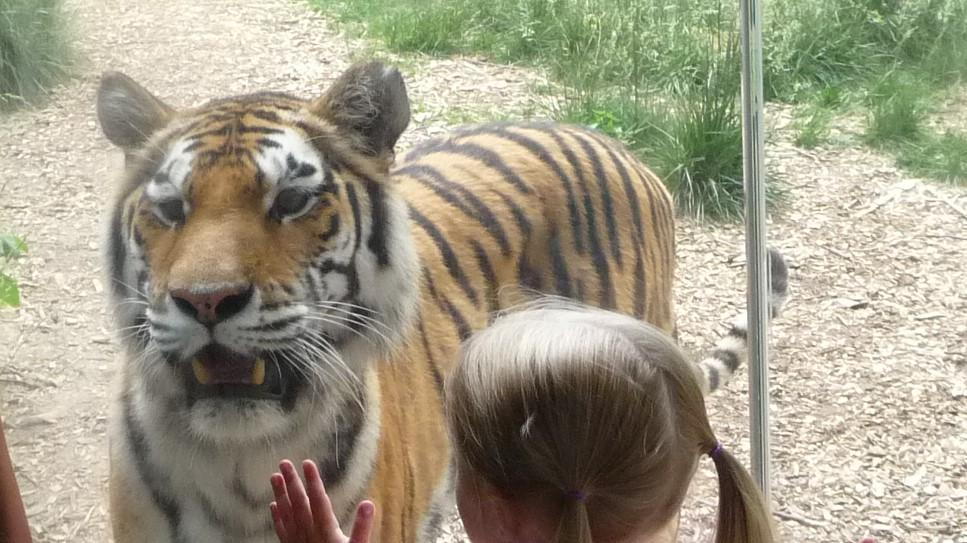COVID-19 in Big Cats: Are Housecats at Risk, Too?

- posted: Apr. 20, 2020
COVID-19 in Big Cats-Are Housecats at Risk, Too?
On April 5, 2020, a Malayan tiger at the Bronx Zoo tested positive for the COVID-19 virus after displaying respiratory symptoms. The tiger was thought to be infected by a zookeeper who was also infected and shedding coronavirus. Three other tigers and three African lions at the Bronx Zoo were also showing respiratory signs, but were not tested for COVID-19 due to the need for general anesthesia to obtain samples. All of the big cats are expected to fully recover. In addition, no other animals at this zoo or any other zoo in the United States appear to be affected.
The test used to diagnose the tiger was not the same type of test being used to diagnose humans and was done through a veterinary school lab. There is no competition for tests being used for animals vs. people and widespread routine testing of animals is not being recommended at this time due to negligible threat.
This has raised questions as to whether domestic cats can be infected or pose any threat to people. While one experimental study shows that cats can be infected with COVID-19, at this time, there is absolutely no evidence that housecats easily contract natural COVID-19 infection nor has there been found to be any risk of housecats passing COVID-19 to people.
There is no need to stop interacting with your cats and no one should give up or euthanize their cats in fear of contracting COVID-19 from a cat nor should they worry about contracting it from dogs, livestock or other animals.
As previously stated on many veterinary and government websites, if you are not ill, you need take no precautions with your pets. They do not pose a threat of contracting the COVID-19 virus from or passing the virus to people. Out of the most extreme caution, the CDC does recommend limiting interactions with pets if you are infected with COVID-19 if possible, having someone else care for your pet while you recover. If this is not possible, use good sense and hygiene by refraining from kissing pets, washing hands after handling your pet and not sharing food with your pet. See the CDC guidelines at https://www.cdc.gov/coronavirus/2019-ncov/daily-life-coping/animals.html.
While more research is being done on animals and COVID-19, we must once again reiterate that house pets and livestock have not been found to be a significant source of infection. Our pets provide stress relief, a dose of humor and a sense of comfort and purpose in our daily lives. We need them and they need us during these difficult times. Should you have any questions about COVID-19 as it relates to pets, please contact your veterinarian.
This blog brought to you by the Patton Veterinary Hospital serving Red Lion, York and the surrounding communities.
Location
Patton Veterinary Hospital
425 E Broadway
Red Lion, PA 17356
